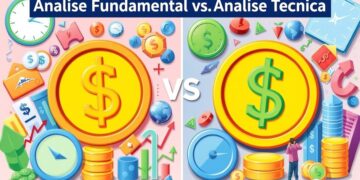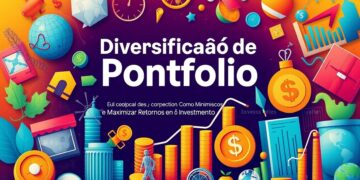
The Impact of Risk Analysis on the Sustainability of Personal Finances in Canada
In an unpredictable economy, risk analysis plays a crucial role in the sustainability of personal finances in Canada. By assessing economic, personal, and regulatory risks, Canadians can make informed financial decisions, enhancing budgeting, investment strategies, and debt management to secure their financial future amid rising uncertainties.

How Risk Analysis Can Help Small Entrepreneurs Protect Their Businesses in Canada
Effective risk analysis is crucial for small entrepreneurs in Canada to safeguard their businesses against various threats, including market volatility and regulatory challenges. By identifying risks, prioritizing them, and developing strategic mitigation plans, entrepreneurs can enhance their resilience and drive sustainable growth amidst uncertainties.

The Importance of Risk Analysis in Investment Decision Making in Canada
Navigating investment decisions in Canada requires a thorough understanding of risk analysis. By assessing market, credit, regulatory, and liquidity risks, investors can make informed choices that enhance portfolio performance. Effective strategies such as diversification and staying updated on regulations empower investors to capitalize on opportunities while minimizing potential pitfalls.

Socially Responsible Investment: Integrating Ethics and Profitability in Your Decisions
Socially Responsible Investment (SRI) is transforming the financial landscape by merging ethical considerations with profitability. This approach empowers investors to align their portfolios with their values, focusing on environmental sustainability, social equity, and corporate governance. With increasing interest, especially in Canada, SRI offers potential financial rewards while contributing to positive societal impact.

Fundamental Analysis vs. Technical Analysis: Which Investment Strategy is Best for You?
Explore the benefits of fundamental analysis and technical analysis to discover which investment strategy suits your financial goals. Long-term investors may favor fundamental analysis for evaluating company value, while active traders might thrive on technical analysis to capitalize on market trends. Understanding your approach can enhance your investment journey.

Portfolio Diversification: How to Minimize Risks and Maximize Returns in Investment
Explore the significance of portfolio diversification in investment strategies to minimize risks and maximize returns. This approach promotes stability by balancing various asset classes, geographic regions, and sectors, empowering investors to navigate volatile markets effectively. Gain insights into techniques and tools that enhance financial success.

Real Estate Investment: Strategies to Leverage the Canadian Property Market
Explore strategies to navigate the Canadian property market effectively through informed decision-making and comprehensive research. Understanding market trends, diversifying property types, and leveraging technology are vital for maximizing investment potential. Discover how to capitalize on opportunities for sustainable financial growth in Canada's dynamic real estate landscape.

Cryptocurrency Investment Tactics: Navigating a Volatile Market Safely
This article explores effective cryptocurrency investment tactics for navigating a volatile market. It emphasizes diversification, diligent research, and risk management strategies like Dollar-Cost Averaging and technical analysis. Investors are encouraged to understand market sentiment, engage with communities, and utilize advanced tools for optimizing portfolio performance and capitalizing on opportunities.

Investment Strategies in Fixed Income: How to Build a Resilient Portfolio
Explore effective investment strategies in fixed income to create a resilient portfolio. Understand various fixed income securities, assess risk tolerance, manage duration, and consider active versus passive management. Diversification, yield curve analysis, and international bonds are essential for maximizing returns while minimizing risks in today’s economic landscape.

Tips to Avoid Credit Card Debt and Improve Your Credit Score
Effective credit card management is essential for avoiding debt and improving your credit score. This article provides practical strategies, such as budgeting, responsible spending, and monitoring credit utilization. By following these tips, you can enhance your financial health and unlock better borrowing opportunities.